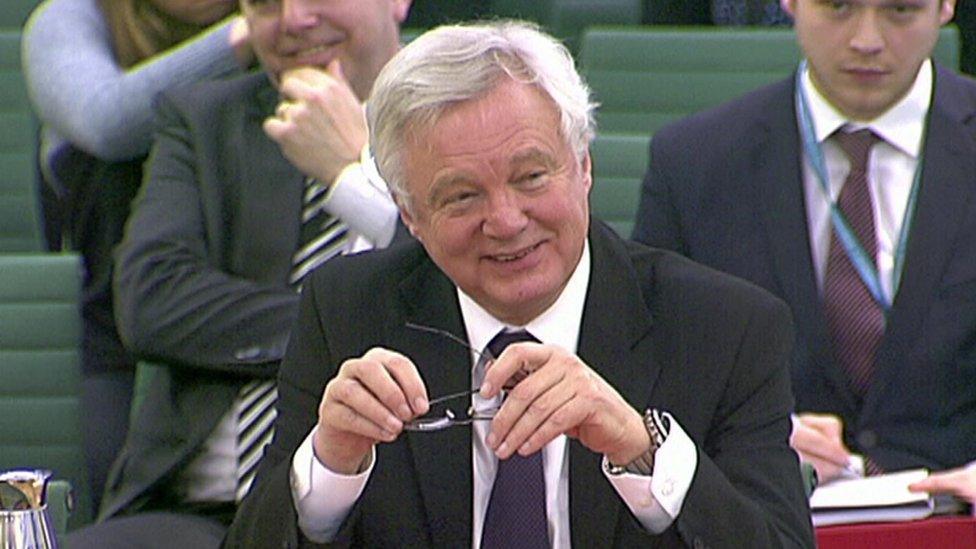Brexit: Three ministers write 'continuity' letter
- Published
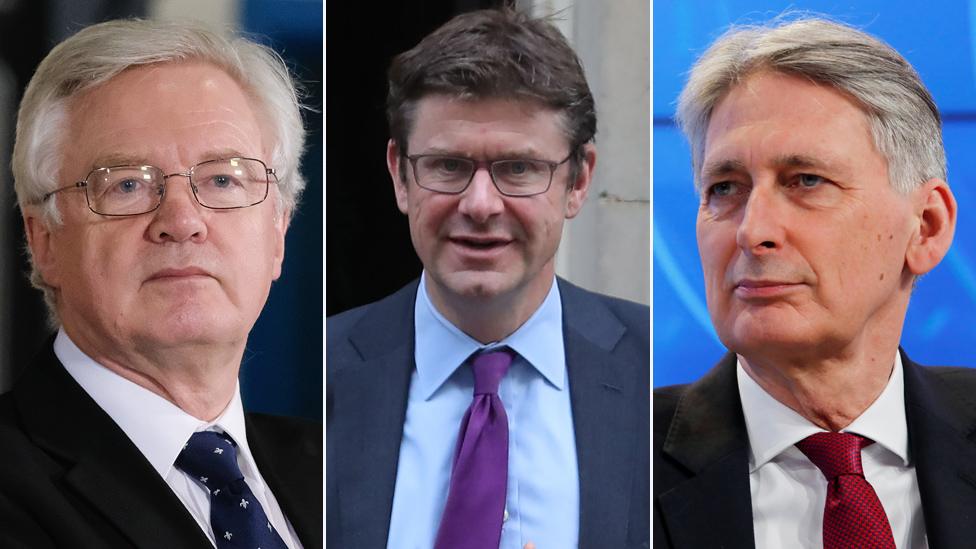
David Davis, Greg Clark and Philip Hammond signed the joint open letter
UK firms will continue to trade under "unchanged" EU rules during the post-Brexit transition period, three cabinet ministers have said in a letter.
Chancellor Philip Hammond, Brexit Secretary David Davis and Business Secretary Greg Clark said access to EU markets would continue on current terms from March 2019 for "around two years".
The open letter to business leaders, external follows Tory party rifts over Brexit.
Tory MP Jacob Rees Mogg said that would amount to "Brexit in name only".
The letter, addressed to "business leaders", said existing rules and regulations would still apply during the UK's Brexit transition, or "implementation period".
The duration of that period will be "strictly time-limited" and will last about two years, they said in the letter.
"In order that our terms of trade remain unchanged during the implementation period, it will need to be based on the existing structure of EU rules and regulations," the three ministers wrote.
"Our intention is to mimic the breadth of our current arrangements, from goods to agriculture to financial services, meaning that every business, small or large, will be able to go on trading with the EU as it does today until it's time to make any changes necessary for the future partnership."
BBC political correspondent Chris Mason said the letter had sought to reassure employers "nervous about the implications of Brexit".
He said it also came after "a blast of internal turbulence" within the Conservative Party over the issue of Brexit.
David Davis said there was no difference over Brexit aims
Earlier this week, backbench Tories criticised Mr Hammond for saying that changes to UK-EU relations could be "very modest".
Mr Rees-Mogg, a Eurosceptic Conservative MP, called for a fundamental change in ministers' tone on Brexit, accusing UK negotiators of being "cowed by the EU".
In an interview with the Daily Telegraph, external, Mr Rees-Mogg warned Prime Minister Theresa May: "The less of Brexit you get, the more likely you are to get Jeremy Corbyn."
He told her that "the leader is important, [but] the party is more important".
"If everything is delayed for two years and then there's high alignment you will find that by 2022 no-one will have noticed any difference from having left," he added.
'Bitter infighting'
Speaking on BBC Radio 4's Today programme, Mr Clark dismissed those who criticised having an implementation period.
He said the UK was "absolutely, unambiguously" still leaving the EU.
But he added: "Businesses all across the country have been very clear - large businesses, but small business as well - that we need to take the time to adjust to the new regime."
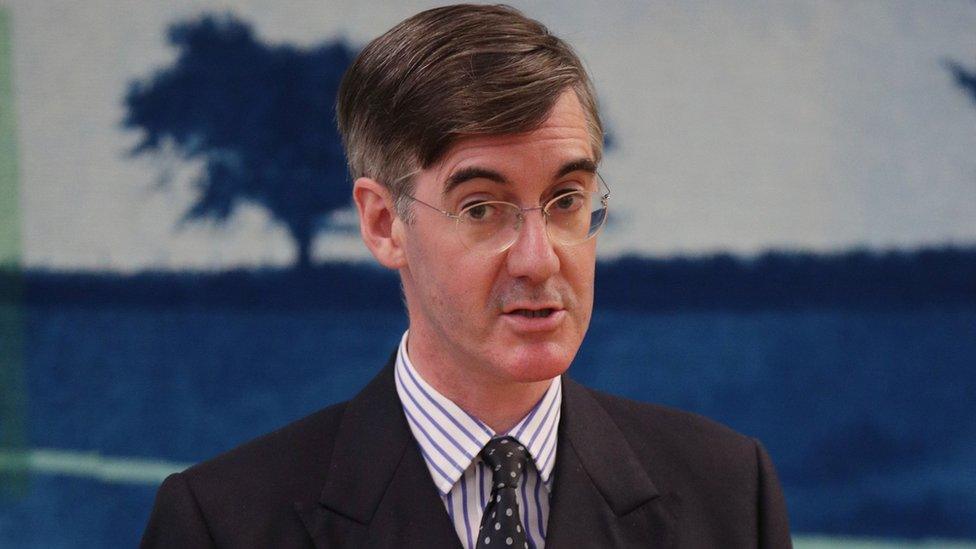
Jacob Rees-Mogg said the party was more important than the party leader
On Friday, Brexit secretary Mr Davis set out his ambitions for an "implementation period" immediately after the UK leaves the EU, in March 2019.
In his speech, Mr Davis said that the UK would be able to sign new trade deals in the "implementation" period.
Eurosceptic Tory backbencher Bernard Jenkin told the BBC it would be easier for the PM if Mr Hammond and other cabinet ministers "stuck to her script".
Labour's Shadow Brexit Secretary Sir Keir Starmer said nothing Mr Davis had said "can mask or hide the bitter infighting that is going on in the government about what form Brexit should take".
- Published26 January 2018
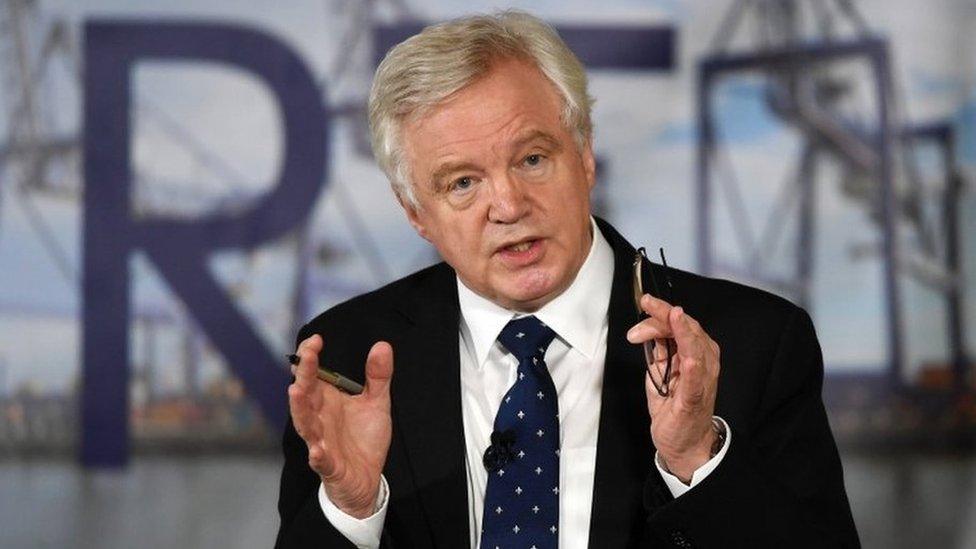
- Published26 January 2018
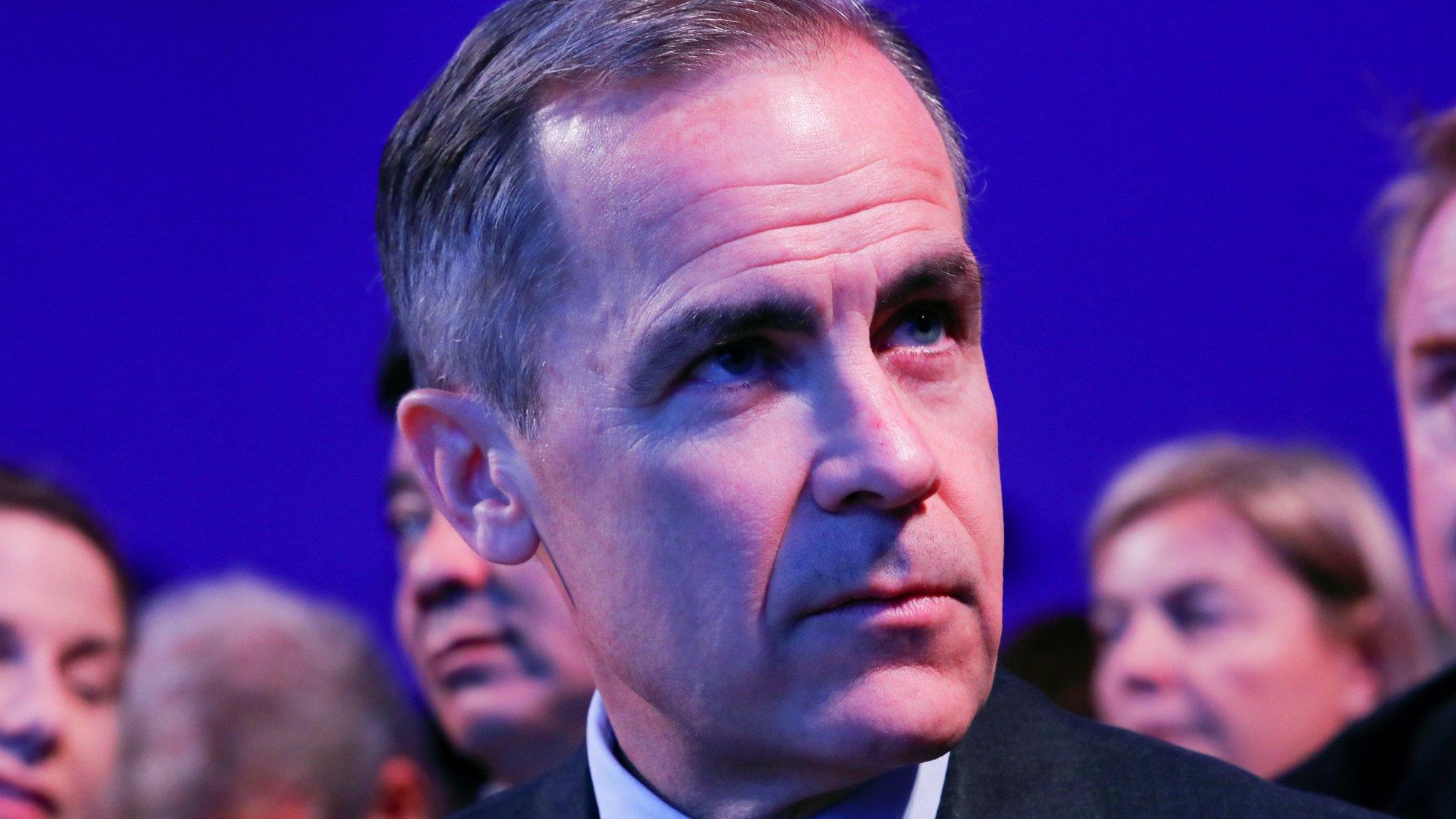
- Published25 January 2018
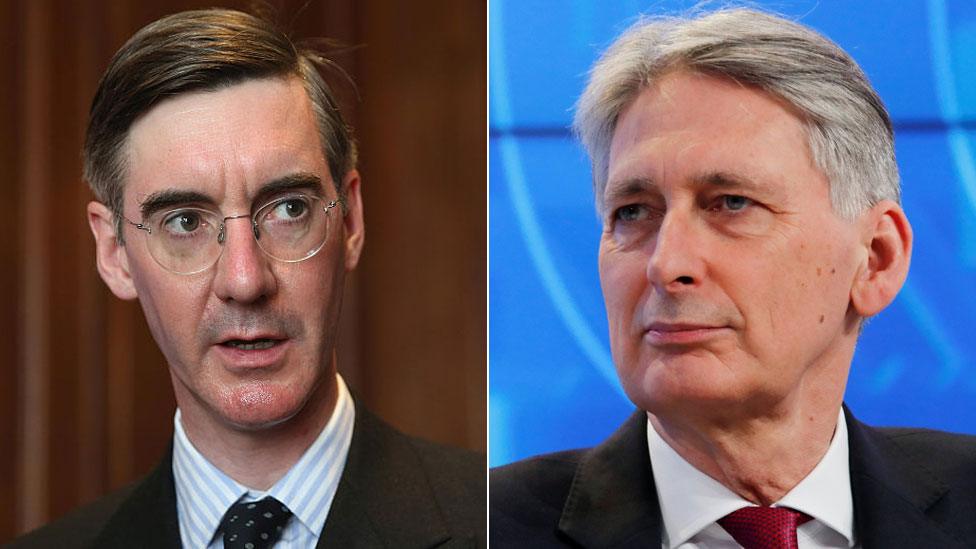
- Published25 January 2018
- Published24 January 2018
